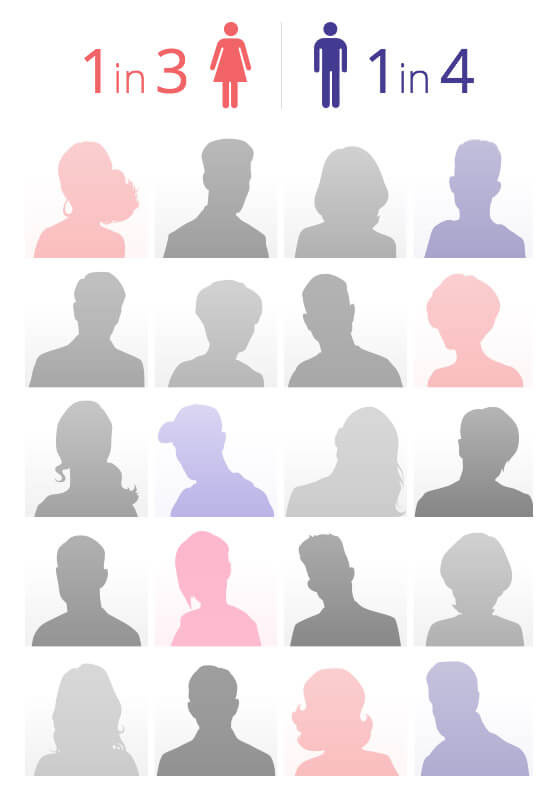Share. Care. Be There.
Is someone you know being hurt?
It is important to remember that you cannot rescue a friend or loved one from an abusive relationship — they have to help themselves. Listen without judging and support them no matter what, because it may take many conversations before your loved one decides to leave or make a change. In the meantime, continue to make the time to listen, offer help and build their confidence.
If someone you care about is being abused, remember that victims still love their partners and hope that they will change. They may feel too embarrassed to leave, because of their place in the community or because they have the same friends. And they may stay out of fear of what might happen, as abusers often retaliate at an escalated level.

Share.
Become someone the victim can trust and share their experience with. Talk to them, have an open conversation and allow them to feel comfortable confiding in you. Listen to what they have to say without passing any judgment.
Care.
Compliment the victim, boost their confidence and remind them how much you care about their well-being. Make it known that you are a trusted resource who isn't going to confront their abuser, disrupt their personal life or talk to others about it. You are someone they can count on to talk, listen and protect them if necessary.
Be There.
Be there to help them plan their exit strategy from the relationship. Be there to support them after they've broken the cycle and left the abuser for good. And be there to comfort them in any way that makes that transition easier, whether it's somewhere to sleep, picking up the children or cooking dinner. Make sure they know that they are not alone to deal with the fallout of leaving an abusive relationship.
When Offering Support, DO:
- Let them know the abuse is not their fault and they are not alone. The behavior was their abuser's choice, not theirs.
- Tell them it is normal to feel upset, depressed, confused and scared when you are being abused.
- Help them understand that abuse is not normal, but it happens a lot and to all kinds of people.
- Give them compliments — I think you are smart, strong and brave, and I think you can make a change.
- Offer help. Ask what you can do to support them, whether it's creating a safety plan, figuring out where to stay, contacting an attorney or finding a support group.
When Offering Support, DON'T:
- Criticize them, make judgments, get angry or make them feel guilty for staying or going back. They have to make a change on their own time.
- Make ultimatums or put them in a position to have to defend their abuser. Remember that they love or loved this person for a reason. It is not your place to bad-mouth the abuser — the victim may resent you for this.
- Bring up the abuse when the abuser is nearby or confront the abuser yourself. You don't want to betray the victim's confidence or trust in you.
- Do not give advice. Help them explore their own feelings, discover their own opinions and make their own decisions. The abuser tries to control them, not you.
Workplace Resources
Educate. Advocate. Lead.
Victims of domestic violence come from all walks of life, meaning workers of every profession may be interacting with a victim on a daily basis without realizing it. On average, a woman will leave an abusive relationship seven times before leaving for good. Some victims may cry out for help while others only give subtle hints, so it’s important you’re aware of the potential warning signs of abuse and prepared to offer the necessary help.
Resources are available to assist professionals in helping patients, clients or employees involved in a domestic violence situation. Numerous professional boards are joining the effort to increase both training and education for domestic violence. For more information, please contact the Department of Labor, Licensing and Regulation.
Click here for advice and resources in the following professions:
- Doctors
- Nurses
- Dentists
- Occupational Therapists
- Physical Therapists
- Pharmacists
- Social Workers
- Cosmetologists
- Counselors and Therapists
- Human Resource Directors
- Small Business Owners
As a professional, you can offer these victims a unique opportunity to reach out for help in a safe and confidential setting. Take advantage of this opportunity to help make South Carolina a safer place.







